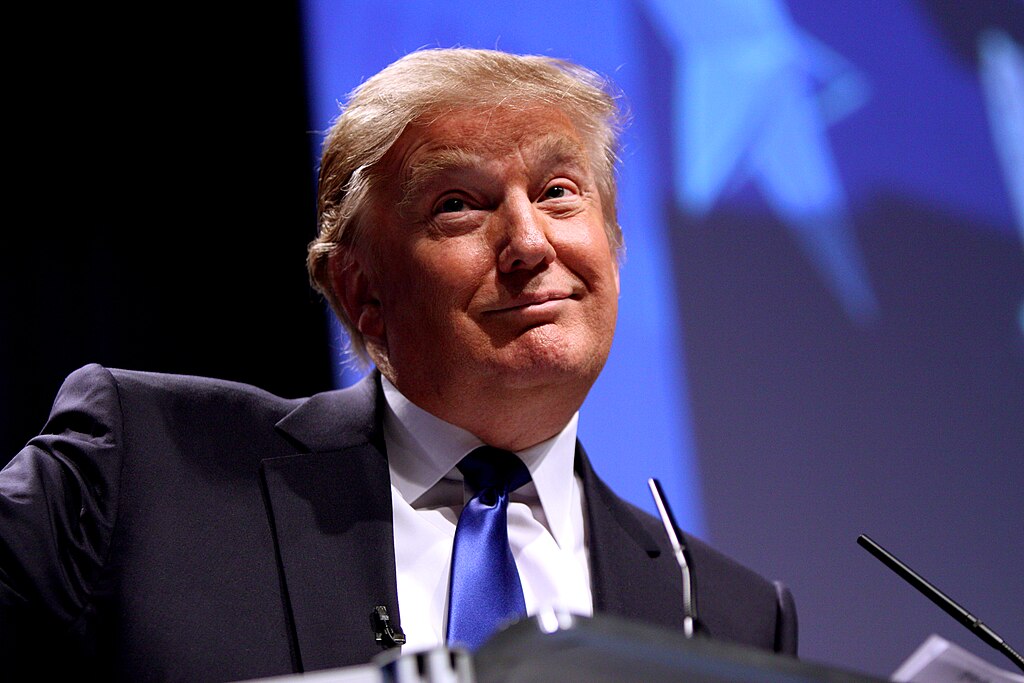As President Donald Trump returns to the White House in 2025, his administration is rapidly moving to reshape voting rights in the United States. With a focus on election security and reform, the administration has introduced controversial measures that have ignited debates across political aisles, raising concerns about their impact on voter access and democratic principles.
A Push for Strict Election Reforms
Trump’s voting rights agenda prioritizes what he calls “election integrity,” advocating for nationwide voter ID laws, stricter regulations on mail-in ballots, and an end to same-day voter registration. These policies, according to the administration, aim to restore public trust in the electoral process following years of contentious debates over alleged voter fraud.
“We need to ensure that every vote cast is legal and verifiable,” Trump said during a recent rally. “Americans deserve elections they can trust.”
The administration has already proposed a sweeping federal bill that would mandate state compliance with its reforms. Critics argue the move encroaches on states' rights, while supporters praise it as a step toward uniform election standards.
Criticism Over Voter Access
Civil rights organizations and Democratic leaders have decried Trump’s measures, claiming they disproportionately affect marginalized communities, including low-income voters and people of color. Critics warn that the proposed restrictions could lead to widespread disenfranchisement, particularly in states that rely heavily on mail-in voting.
Stacey Abrams, a leading voice on voting rights, described the proposals as “a blatant attack on the democratic process.” Advocacy groups like the ACLU and NAACP have also vowed to challenge the administration’s actions in court.
“Instead of strengthening democracy, these policies threaten to weaken it by silencing vulnerable voters,” said Derrick Johnson, NAACP president.
Public Reaction Fuels Heated Debate
Trump’s voting rights stance has ignited fierce debates on social media, with opinions ranging from staunch support to vehement opposition. Netizens were quick to weigh in on the administration’s controversial approach:
-
@Patriot2025: “Finally, a leader who takes election security seriously! Trump’s reforms are exactly what America needs to prevent fraud.”
-
@VoteFairNow: “These laws are a thinly veiled attempt to suppress votes. Everyone deserves access to the ballot box!”
-
@ElectionWatcher: “Uniform voting standards make sense. But why does it feel like certain groups are being targeted?”
-
@Democracy4All: “Trump’s moves are a disgrace. Voting should be easier, not harder!”
-
@RedStateRules: “Liberals hate this because they know their system thrives on loopholes. Election integrity matters more than convenience.”
-
@RightsMatter2025: “This is the start of a slippery slope. What’s next, literacy tests?”
Legal Battles and Uncertain Outcomes
As Trump’s proposals gain traction, legal challenges are expected to delay their implementation. Several states, particularly those with Democratic leadership, have vowed to resist federal overreach on voting regulations. Experts predict prolonged court battles that could shape the future of American elections.
Despite mounting criticism, Trump remains steadfast, framing his reforms as essential to preserving democracy. However, the impact of these measures on voter participation and public confidence remains a contentious issue that will likely dominate political discourse in the coming months.



 Why did Iran bomb Dubai? A Middle East expert explains the regional alliances at play
Why did Iran bomb Dubai? A Middle East expert explains the regional alliances at play  Trump Launches Operation Epic Fury: U.S. Strikes on Iran Mark High-Risk Shift in Middle East
Trump Launches Operation Epic Fury: U.S. Strikes on Iran Mark High-Risk Shift in Middle East  Trump Warns Iran as Gulf Conflict Disrupts Oil Markets and Global Trade
Trump Warns Iran as Gulf Conflict Disrupts Oil Markets and Global Trade  UK Accepts U.S. Request to Use British Bases for Defensive Strikes on Iranian Missiles
UK Accepts U.S. Request to Use British Bases for Defensive Strikes on Iranian Missiles  AI is already creeping into election campaigns. NZ’s rules aren’t ready
AI is already creeping into election campaigns. NZ’s rules aren’t ready  Israel Launches Fresh Strikes on Iran After Death of Supreme Leader Ayatollah Khamenei
Israel Launches Fresh Strikes on Iran After Death of Supreme Leader Ayatollah Khamenei  Zelenskiy Urges Change in Iran After U.S. and Israeli Strikes, Cites Drone Support for Russia
Zelenskiy Urges Change in Iran After U.S. and Israeli Strikes, Cites Drone Support for Russia  Suspected Drone Strike Hits RAF Akrotiri Base in Cyprus, Causing Limited Damage
Suspected Drone Strike Hits RAF Akrotiri Base in Cyprus, Causing Limited Damage  Middle East Conflict Escalates After Khamenei’s Death as U.S., Israel and Iran Exchange Strikes
Middle East Conflict Escalates After Khamenei’s Death as U.S., Israel and Iran Exchange Strikes  Marco Rubio to Brief Congress After U.S.-Israeli Strikes on Iran
Marco Rubio to Brief Congress After U.S.-Israeli Strikes on Iran  U.S. Lawmakers Question Trump’s Iran Strategy After Joint U.S.-Israeli Strikes
U.S. Lawmakers Question Trump’s Iran Strategy After Joint U.S.-Israeli Strikes  Australia Rules Out Military Involvement in Iran Conflict as Middle East Tensions Escalate
Australia Rules Out Military Involvement in Iran Conflict as Middle East Tensions Escalate  Trump Says U.S. Combat Operations in Iran Will Continue Until Objectives Are Met
Trump Says U.S. Combat Operations in Iran Will Continue Until Objectives Are Met  EU Urges Maximum Restraint in Iran Conflict Amid Fears of Regional Escalation and Oil Supply Disruption
EU Urges Maximum Restraint in Iran Conflict Amid Fears of Regional Escalation and Oil Supply Disruption  Macron Urges Emergency UN Security Council Meeting as US-Israel Strikes on Iran Escalate Middle East Tensions
Macron Urges Emergency UN Security Council Meeting as US-Israel Strikes on Iran Escalate Middle East Tensions  HHS Adds New Members to Vaccine Advisory Panel Amid Legal and Market Uncertainty
HHS Adds New Members to Vaccine Advisory Panel Amid Legal and Market Uncertainty  Israel Strikes Hezbollah Targets in Lebanon After Missile and Drone Attacks
Israel Strikes Hezbollah Targets in Lebanon After Missile and Drone Attacks 
































